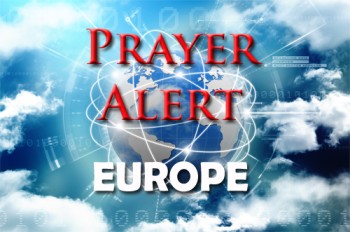Displaying items by tag: democracy
Twenty-two councils ask for election delays
More than twenty English councils have requested permission to delay their local elections scheduled for May, affecting over 2.5 million voters. The proposed postponements are linked to the government’s wide-ranging reorganisation of local government, which will replace many two-tier county and district councils with new unitary authorities. Ministers argue that holding elections for councils expected to be dissolved or restructured within a year would be costly, inefficient, and distracting from frontline services. Elections would instead be deferred until 2027. However, the move has sparked significant political controversy. Opposition parties have accused the government of undermining democratic accountability and avoiding voter scrutiny, warning that councillors could remain in office for extended periods without renewed mandates. Protests have erupted at some council meetings, highlighting public concern over transparency and trust in the democratic process. While ministers insist that national security, efficiency, and service delivery remain priorities, critics argue that postponing elections risks weakening public confidence in local government.
Moldova: president warns of Russian interference as elections near
Days before crucial parliamentary elections, Moldova’s president Maia Sandu has warned that Russian-backed plots are threatening her nation’s independence and European aspirations. Police have arrested 74 people accused of planning violent unrest, seizing weapons and explosives allegedly supplied through Russian training in Serbia. Sandu accused the Kremlin of pouring hundreds of millions of euros into Moldova to spread disinformation, buy votes, and intimidate pro-EU supporters, echoing past meddling during the 2022 EU-accession referendum which was narrowly approved by just 50.4%. Pro-Russian parties deny wrongdoing and claim Sandu is stifling opposition, while Moscow’s SVR intelligence agency countered with disinformation alleging European plans to falsify the vote and occupy Moldova. Sandu’s Party of Action and Solidarity faces stiff competition, especially in Russian-speaking regions like Gagauzia where many favour closer ties to Moscow. She is calling for high voter turnout, particularly from the diaspora, to safeguard the country’s sovereignty and keep its path toward EU membership.
USA: outcome of presidential election too close to call
As 5 November draws near, the presidential race between Kamala Harris and Donald Trump is extremely close, with Harris at 48% and Trump at 47% support according to a recent poll. Harris garners stronger personal support, especially on issues like reproductive rights, uniting the country, and protecting democracy, while Trump is seen as stronger on the economy, immigration, and foreign policy. Trump’s supporters focus on economic issues, particularly inflation, whereas Harris’ supporters prioritise protecting democracy. Both candidates have a gender divide in support, with independent women favouring Harris and independent men leaning toward Trump. The poll also highlights a nation divided on political violence: 77% believe current political discourse encourages violence, with more fearing escalation if Trump wins (57%) than if Harris does (42%). Emotions run high, with nearly equal numbers expressing fear (47% for Trump, 45% for Harris) and excitement (41% for Trump, 40% for Harris) depending on the winner. Both candidates inspire complex reactions, reflecting shifts from past elections and a broader concern about the country’s direction. For a discussion about what difference the result of the election would make, see
Hong Kong: new law draws widespread criticism
There has been a wave of criticism over Hong Kong's new security law, known as Article 23, unanimously passed by the pro-Beijing parliament on19 March. It allows closed-door trials, extended detention without charge, and penalties including life imprisonment. 81 lawmakers and public figures from across the world have said that it undermines due process and fair trial rights and violates Hong Kong's obligations under international human rights law. Hong Kong's chief executive has defended the law, claiming it will protect against foreign interference. However, critics see it as ‘one more step towards the system of mainland China’, and describe a ‘chilling effect’ on civil society. There are also concerns that the law could also be used to target HongKongers overseas, or their families and friends back home. The law's passage marks another blow to Hong Kong's autonomy, tightening China's grip on the city.
Global: elections in the first half of 2024
2024 will see the most extensive year of elections ever, with 4.2 billion people in 76 countries set to vote. However, the state of democracy appears precarious; global reports show it contracting, accompanied by widespread disillusionment, especially among the youth. Elections often fail to rekindle faith in democracy, and authoritarian leaders often exploit them to their own ends. Moreover, elections can expose democracies to external threats, exemplified by Taiwan (13 January), under great pressure from its neighbour China. The one in Bangladesh (8 January) merely solidifies existing rule, with the main opposition party abstaining. In February Pakistan's election may escalate the conflict between Imran Khan and the military, while in Indonesia the outgoing president is backing a candidate who has a record of human rights abuses. 17 March will demonstrate a stark contrast: Russia's vote will proceed while Ukraine's may be postponed to protect its voters from being killed by Russian bombs. In South Africa, maybe as early as May, an opposition coalition could take power - but would that make any significant difference? The month-long election in India carries concerns over prime minister Narendra Modi’s growing authoritarianism. In June the EU assembly elections, the world's second-largest, may see far-right, anti-democratic parties making significant gains, further complicating the global democratic landscape.
Global: democracy declines
An annual report by the Stockholm-based International Institute for Democracy and Electoral Assistance (IDEA) says that democracy declined around the world for the sixth consecutive year in 2022 as half the world’s countries slid backwards on indicators such as freedom of expression and political participation. IDEA secretary-general Kevin Casas-Zamora stated that ‘democracy is still in trouble, stagnant at best, and declining in many places’. The six-year fall is the longest period of democratic backsliding since records began in 1975. Casas-Zamora attributed the decline to the global weakening of democratic institutions that otherwise help safeguard human rights and the rule of law. Both the United Kingdom and the United States were named as ‘backsliding’, as were Guatemala and El Salvador, which both saw widespread political turmoil and human rights violations in 2022. In eastern Europe and Asia, countries such as Azerbaijan, Belarus, Russia, and Turkey scored poorly: in Africa the decline was exemplified by a wave of coups d’etat.
Israel: change needed for peace to prevail
Tens of thousands of Israelis continue with weekly protests over the justice system and as many as one in three are considering leaving Israel. A leading radiologist, Professor Hoffmann, is in the process of moving to a UK hospital and is trying to persuade other members of his family, who all have European passports, to consider leaving too. He is going to London for a sabbatical, to see if he can live outside Israel, where the situation is worsening daily. Protesters believe that government changes endanger democracy, while Israel's coalition argues that it fixes a judicial system where elected politicians are too easily overruled. Demonstrators hope to overturn new laws, but many admit that emigrating is something they, or those close to them, have considered. One demonstrator said, ‘It would be heart-breaking but I will not raise my children in a country which is not democratic. If I’m not sure that my daughter's rights as a young woman are guaranteed, we will not stay here.’
Canada: Quebec ties to King Charles III
On October 26th Canadian parliamentarians voted no to severing ties with the monarchy, after Yves-Francois Blanchet introduced a motion that sparked conversation in the House of Commons about the monarchy. His move follows 14 recently elected Quebec politicians refusing to recite an oath of allegiance to the King as required by Canadian law. Many Quebecers are in favour of Canada being a republic rather than a constitutional monarchy - a sentiment that is tied to the province's history of being a French-speaking region that was once under British colonial rule. Over the years Quebec politicians have continued to put forward policies that seek to define the province as distinct from English Canada. When tabling his motion Mr Blanchet said Canada's tie to the British Crown is ‘archaic.’ Opinion polls following Queen Elizabeth’s death found 79% of Quebec agreed they should sever their ties with the Crown.
Tunisia: the road to democracy
With the first steps towards a democratic government in 2019, Tunisians hoped their political institutions and politicians would respond to the needs of the population. The Arab Spring called its leaders to account, looking for diversity and accountability. President Kais Saied was elected. They wanted democracy, but it takes time. On 25 July, after nationwide violent protests over economic and social turmoil and the government's poor handling of Covid cases, Tunisia's president sacked the prime minister and suspended parliament. When Saied announced he was taking over, opponents immediately accused him of staging a coup. Sadly, Arab Spring has not led to a stable economy or politics. Saied said he took these decisions ‘until social peace returns and we save the state.’ He vowed to respond to further violence with military force.
USA: politics, power, pandemonium
After the storming of the Capitol building when President Trump incited aggressive moves to overturn the 2020 election result, the House voted for an article of impeachment against him. Nations are commenting on US events. The Archbishop of Wales said that Trump is a person of questionable morals, judgment, and wisdom who believes he can ignore democratic processes and the will of the people. ‘No politician has a right to be unaccountable for their behaviour.’ See Meanwhile the FBI have called for assistance in securing Washington as the inauguration nears. They believe the attack on the Capitol will potentially motivate additional follow-on attacks by extremists throughout 2021 and will very likely serve as a significant driver of violence for domestic extremists.’The range of potential future targets of attack was varied, extremists could zero in on government officials and institutions, as well as racial and religious minorities, journalists and more.









